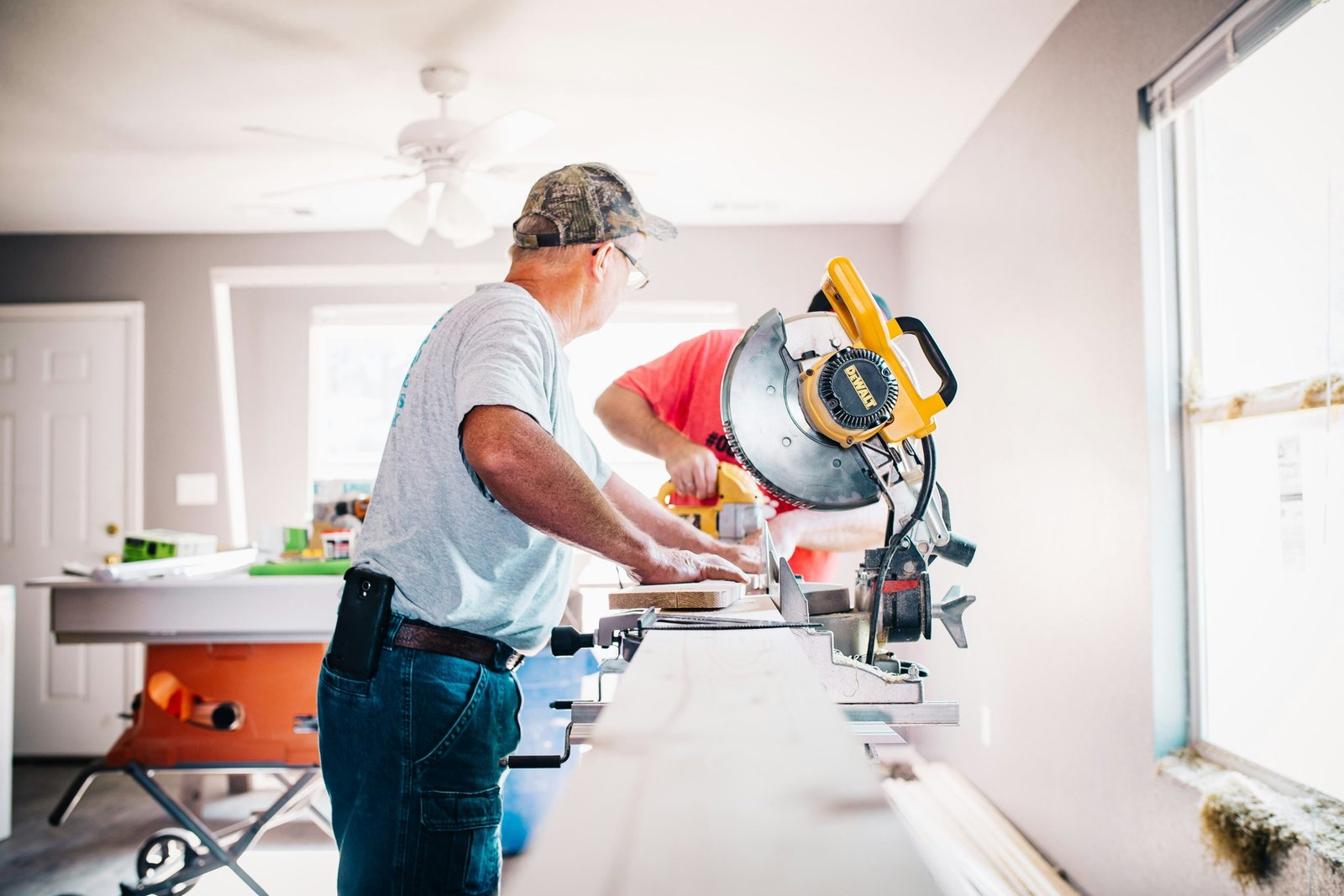Get the week's most popular posts delivered to your inbox.
Our weekly update is free yet priceless and you're less than a minute away from getting the current edition.
In the unlikely event we disappoint, you can unsubscribe with a single click!
Last Updated on October 30, 2025 by teamobn

Home renovation can be rewarding, but the entire experience can be challenging for first-time renovators. Without careful planning and preparation, renovating your home can lead to costly and irreparable mistakes.
Whether you plan to make major or minor enhancements to your precious home, this guide offers valuable tips to help make your first home renovation project more organized, efficient, and successful.
Contents
Establish a Feasible Budget
Home renovations, even minor projects, can be financially challenging. It’s vital to develop a workable budget that can effectively accommodate your renovation needs without denting your household budget.
Considering your current financial situation, determine how much you can realistically and comfortably spend on your renovation. Make sure that your established budget has enough wiggle room for the inevitable unforeseen repairs and unexpected expenditures.
Renovation delays are often due to insufficient funding, making the entire experience unpleasant for everyone involved. Even if you plan to take home improvement loans or secure third-party financial help, it is still best that you have sufficient monetary resources before starting this venture.
Assess Your Home
To ensure a smooth renovation process, you must first conduct an honest and thorough assessment of your home. Evaluate the current condition of your home and go beyond what you see visually. Take a close look at your current space to efficiently identify areas that need further improvement.
Check for signs of structural damage, such as a sagging roof; cracks in the foundation, walls, or ceilings; uneven gaps between the windows and frames; and uneven floors. Assessing your home before making enhancements can help you make informed decisions, leading to a successful home renovation.
Define Your Priorities
Even if you plan to renovate your entire house, you must determine your objectives, including your renovation non-negotiables. Are you renovating to improve your property’s resale value? Do you want to make your home more comfortable and functional? Are you interested in a bigger kitchen or bedroom?
Decide which aspects of the renovation that are most important to you and need to be addressed first. This can help you once you start crafting your renovation plan, as you’re more aware of which updates deserve your time, energy, and financial resources.

Do Your Research
Proper research is integral to a successful home renovation. Since this is your first time tackling a significant undertaking, you must educate yourself not only about the renovation process but also about mistakes you need to avoid at all costs.
Research the technicalities of home renovation, especially the building code requirements in your location and how you can obtain the necessary permits. If you have family or friends who recently renovated their homes, encourage them to share their experiences, best practices, and hurdles they encountered during the entire process and the solutions they utilized to address them.
Weigh Your Renovation Options
Consider different approaches to your renovation to find the best fit for your needs and budget. Will you be doing a do-it-yourself (DIY) project, hiring professional contractors, or both? Weigh the pros and cons of each and think of efficiency. Consider your desired outcomes, timeline, resources, and renovation goals to help you decide.
While doing a DIY may seem ideal initially, this approach may not be best for a first-time renovator, especially if you plan to make major changes. Investing in professional help can save you from unnecessary stress and ensure that your renovation project runs smoothly. However, if budget is an issue, consider doing a mix of both.
Home improvement tasks you can DIY include repainting walls or the exterior, changing light fixtures, installing furniture, caulking, and addressing minor repairs. For complicated tasks that involve structural enhancements or plumbing or electrical work, it is best to work with professionals. If your home renovation project involves roofing, make sure to find qualified and trusted roofing contractors with excellent reputations. Roofing tasks are inherently dangerous, so they are best left to professionals.

Prioritize Safety
Home renovations can become an endless source of safety hazards. Keep safety at the forefront during the renovation process, not only for you and your family but for everyone involved in the project. If you have pets or small children, it is best to stay for the meantime in another accommodation.
If it’s not possible, make sure to dedicate an area in your home where you and your family can safely and comfortably rest.
Before starting renovation, clean and declutter the spaces where you plan to make enhancements. Identify safety hazards and use protective covers for your furniture, floors, appliances, and other furnishings to prevent them from getting damaged.
Create a Detailed Renovation Plan
Considering the previously discussed pointers, outline the steps you plan to take, the timelines, and the essential permits you need to secure beforehand. Make sure you develop a plan weeks or preferably months before the actual renovation date. This will allow you to make the necessary adjustments and explore the best options for your desired project.
Manage Your Expectations
Home renovation projects, even minor ones, often come with unforeseen issues. They can take longer and become more complicated than necessary, no matter how prepared you are. It is important that you set realistic expectations and learn to manage them. Establish a realistic timeline for your home renovation to help keep everything on track. Develop a contingency plan to accommodate unexpected challenges that can compromise the entire process.
Communicate clearly with the professionals you’ll be working with to ensure that everyone is on the same page. However, refrain from micromanaging your designer, contractor, or anyone in your team, even if you’re way beyond your target completion date. Pressuring or watching their every move will not make everything faster nor efficient. Approach this project with a flexible mindset and learn to temper your expectations.
Endnote
Renovating your home for the first time doesn’t need to be complicated. By following these valuable tips, you can effectively ensure a smoother and more meaningful home renovation experience for you and your loved ones.
Get the week's most popular posts delivered to your inbox.
Our weekly update is free yet priceless and you're less than a minute away from getting the current edition.
In the unlikely event we disappoint, you can unsubscribe with a single click!






